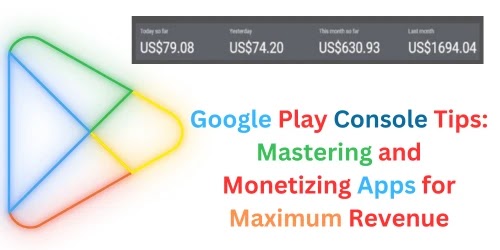1 - Run a Beta Test: Conducting a beta test allows you to gather valuable feedback from a select group of users before the app's official release. This helps identify and address any bugs or issues, ensuring a smoother user experience.
2 - Stagger the Release of App Updates: Instead of releasing updates to all users at once, consider a staged rollout. This way, you can monitor user feedback and address any glitches or concerns before the update reaches a broader audience.
3 - Run Google Play Store Listing Experiments: Experiment with different app listing variants, such as icons, screenshots, or descriptions, to determine which elements resonate best with users. Optimizing your app's store listing can significantly impact conversion rates.
4 - Reply to Reviews: Engage with your users by replying to their reviews promptly. This shows that you value their feedback, builds loyalty, and enhances your app's reputation. Addressing concerns or thanking users for positive feedback fosters a sense of community.
5 - Improve Your App with Optimization Tips: Optimize your app's performance by reducing app size, improving load times, and optimizing battery consumption. A smooth and efficient app experience leads to higher user satisfaction and retention.
6 - Enable App Indexing: Implement app indexing to allow users to find relevant content within your app through Google Search. This boosts visibility and increases organic traffic to your app.
7 - Link Your Google Analytics Account: Connect your Google Analytics account to gain deeper insights into user engagement, retention, and behavior. Analyzing this data can help you make informed decisions to improve your app's performance.
8 - Get Email Alerts About Your App's Performance: Set up email alerts to stay informed about important updates, such as app crashes, changes in user ratings, or significant shifts in app performance metrics. Prompt notifications allow you to take immediate action when needed.
9 - Export Your Stats for Further Analysis: Export your app's performance data from Google Play Console and analyze it using external tools. This provides deeper insights into user behavior, monetization patterns, and potential areas for improvement.
10 - Automate Your Publishing Tasks: Streamline your app publishing process by leveraging automation tools. This saves time and ensures a smoother release process for updates and new versions.
11 - Create Tutorial Videos: Produce tutorial videos that showcase how to use your app's key features and functionalities. Visual guides can attract new users, improve user onboarding, and increase overall engagement.
For more information and additional tips on Google Play Console and app development, visit https://play.google.com/console/about/






.webp)

-Otimizado-para-SEO.webp)



